What happened to Johnny Hoogerland?
A career defined by a collision with a TV car at the 2011 Tour de France, we tracked down the Dutch rider to find out how the next 10 years unfolded
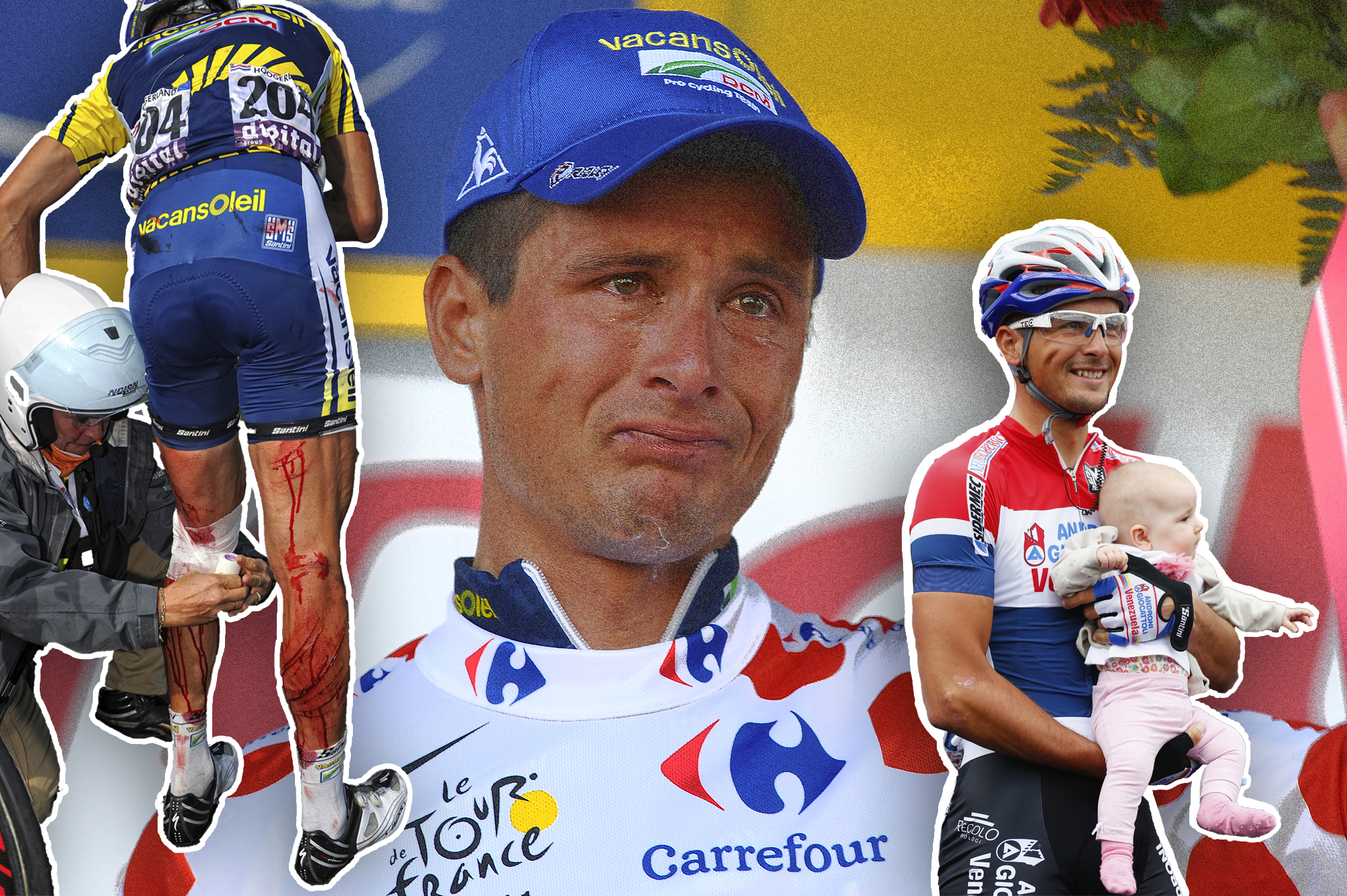
Johnny Hoogerland (Photo by Tim de Waele/Corbis via Getty Images)
Every cycling fan has an early, defining moment of their introduction to the sport. Most of these will involve the Tour de France, whether it's mystical tales of Merckx or Hinaut, Greg LeMond beating Lauren Fignon by eight seconds in 1989, the not-supposed-to-be-talked-about Lance years, or for newer British fans the dominance of Sky throughout the 2010s.
Others will have a more specific memory. Mine is stage nine of the 2011 Tour when Johnny Hoogerland and Juan Antonio Flecha were swept off the road by a French television car onto a barbed wire fence. The aftermath was bloody, a gruesome induction into what professional cycling entails. What's more, Hoogerland and Flecha got back on their bikes and finished the stage, the Dutchman climbing up to the podium to collect the polka dot jersey he had won back before the crash.
Sometimes, especially given most of us now found ourselves locked inside our houses with a lot of spare time on our hands, the mind wanders. Huh, I wonder what happened to Johnny Hoogerland? Sure, a quick Google shows he went on to become Dutch national road race champion in 2013 before retiring at the end of 2016, but that's unlikely to be the whole story is it?
A deeper dig reveals he now runs a hotel with his wife and kids in Austria, and their website comes attached with an email address. A few days later and an unmistakably Dutch voice answers my phone call. "Hallo, Jonny". Over the next 30 minutes he tells the story of what exactly happened to Johnny Hoogerland.
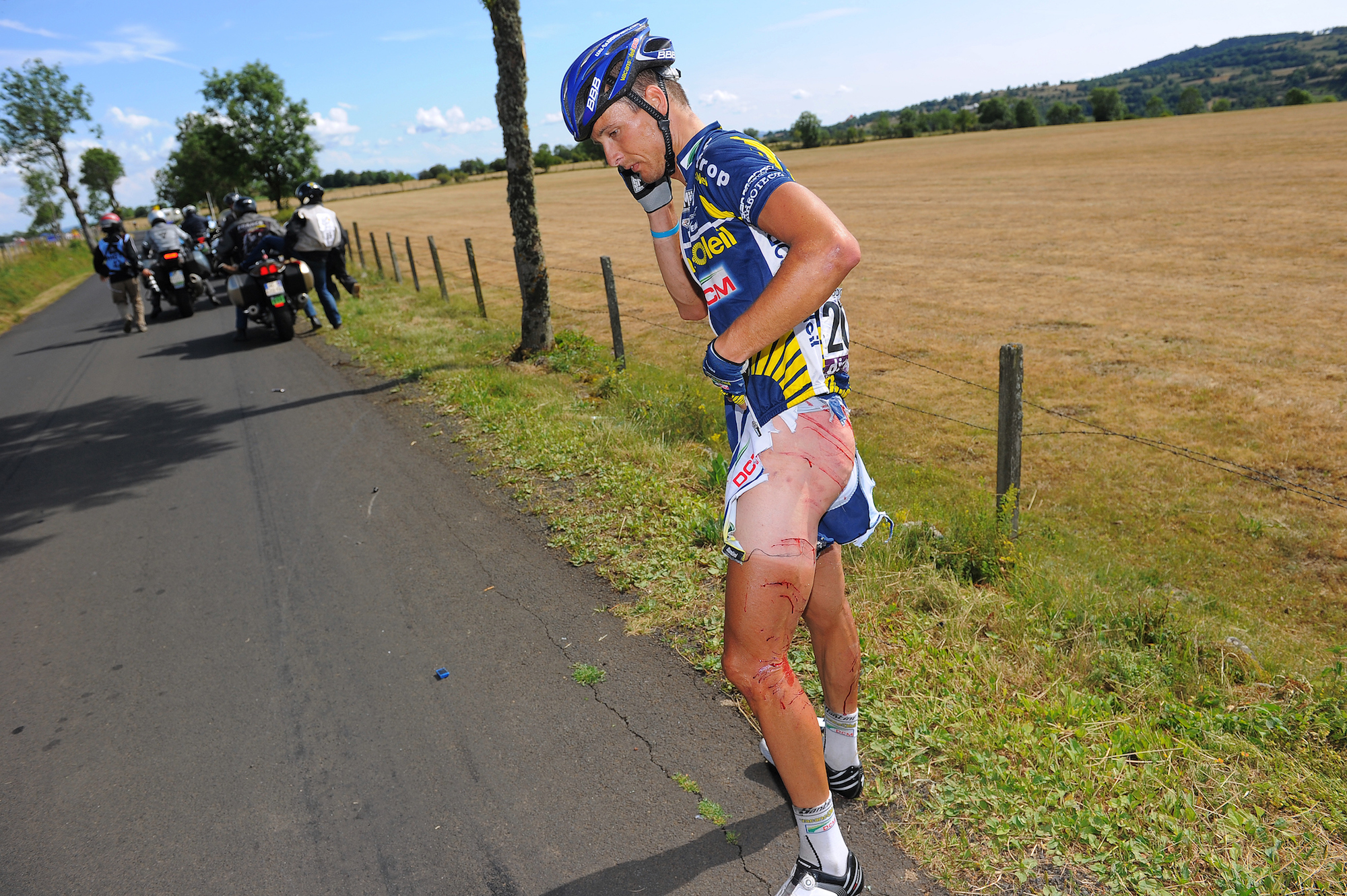
The most obvious place to start is what happened on the day when most people became aware of the Dutchman, the experience from within the eye of the storm.
"I think everybody saw what happened," Hoogerland starts, in the matter of fact way only Dutch can truly master. "It was one of the first really hard stages where the breakaway could have a chance so we were actually four really strong riders in the break; Thomas Voeckler, Niki Terpstra, Sandy Casar and Juan Antonio Flecha.
The biggest crash of the day actually occurred on the descent from the Pas de Peyrol, which extended the break's advantage as well as the hope their move could last until the finish line. Then, with 35km to go, Hoogerland was dreaming of the stage win, "but then the car passed us and everybody knows what happened then," he sighs.
Get The Leadout Newsletter
The latest race content, interviews, features, reviews and expert buying guides, direct to your inbox!
As he was picking himself up off the floor, did he realise just how crazy what had just happened was? How big a commotion the incident would cause?
"Of course, I knew it was insane what happened, but I could never have imagined how big it would be..." he pauses, "no...I could never have imagined that actually."
"The attention was unreal because I’d had some good results in the past, I knew I was a decent rider but it was my first Tour de France and then this happened.
"I remember the day after was a rest day. We went to sleep at the hotel that night and woke up the next day and there were 30 cameramen and their teams waiting there. For me. And then I was like ‘F**k, what is happening?’"
The incident was of such magnitude that it reverberated outside of the already massive circus of the cycling world in the midst of a Tour de France.
"And then of course in the days after it was all in the media and in my hometown where I live. Everyone saw it on the eight o'clock news on the Dutch channel, also people who don't know about cycling saw it on the news, so it was that big in the Netherlands, everybody knows me from that."
Most riders who manage to remain in the memories of fans do so because of momentous victories. Hoogerland would have thought spending a year in the Dutch national colours after emerging victorious from the 2013 edition in Southeast Limburg would have secured his place in the history books, but still it's the crash which dominates the rest of his career.
"Three years after [the Tour crash] I won the Dutch National Championships, Tom Dumoulin finished second, not too bad a result I think to myself. But say out of the 100 people who have come up to me after this to talk about my career, 75 first bring up that crash."
It was nearly another crash which proved much more final for Hoogerland though. In the spring of 2013 he was training in Spain, about 5km from Benidorm, for the season ahead when his wife came over for a long weekend. He rented a motorcycle as the next week he had the Tour Méditerranéen.
They set off for the top of a hill to do some motor pacing. "I said to my wife the first 2km descent I’ll do and then down in the valley we’ll start motor pacing," Hoogerland recalls.
"So I went down the road I was used to doing every day and a car was reversing out of its driveway and the driver was blinded by the sun. He went onto my part of the road because he didn’t know I was there and I was coming down at 55/60km/h and I had no chance to avoid it.
"I went full speed into the car. It was horrible. I broke five ribs, five parts of my back, not my real spine but five of my discs, some of my rib went through my lung and my liver was damaged. I was in intensive care for five days and in total spent 15 days in the hospital. It was actually much worse than what happened in the Tour. In the Tour I rode my bike again a day later but not many people know much about this second crash as it didn’t have the attention."
Remarkably, from the crash on February 10, just 133 days later Hoogerland was crossing the line 23 seconds ahead of Tom Dumoulin.
"My rehab went pretty well but I still spent seven weeks off the bike. The training went well so at the end of April I did the Tour de Romandie as my first race back. Afterwards I did the Tour of Belgium and then I did the Critérium du Dauphiné and in the Dauphiné I was so bad I was thinking ‘what are you going to do now?’"
The boost Hoogerland needed came from the man who his fate had been tied to inextricably since the 2011 Tour.
"Juan Antonio Flecha invited me to his house in the Pyrenees and said ‘come and train here for the next 10 days’. Actually, I did it as my training for the Tour de France, as I had no races to prepare for the Tour.
"Then I flew back to the Netherlands and on the Sunday it was the Nationals. Really, I had no expectations but on that day everything went well. Everything fell into the right place in the race. It was pretty emotional, my wife was there and everything."
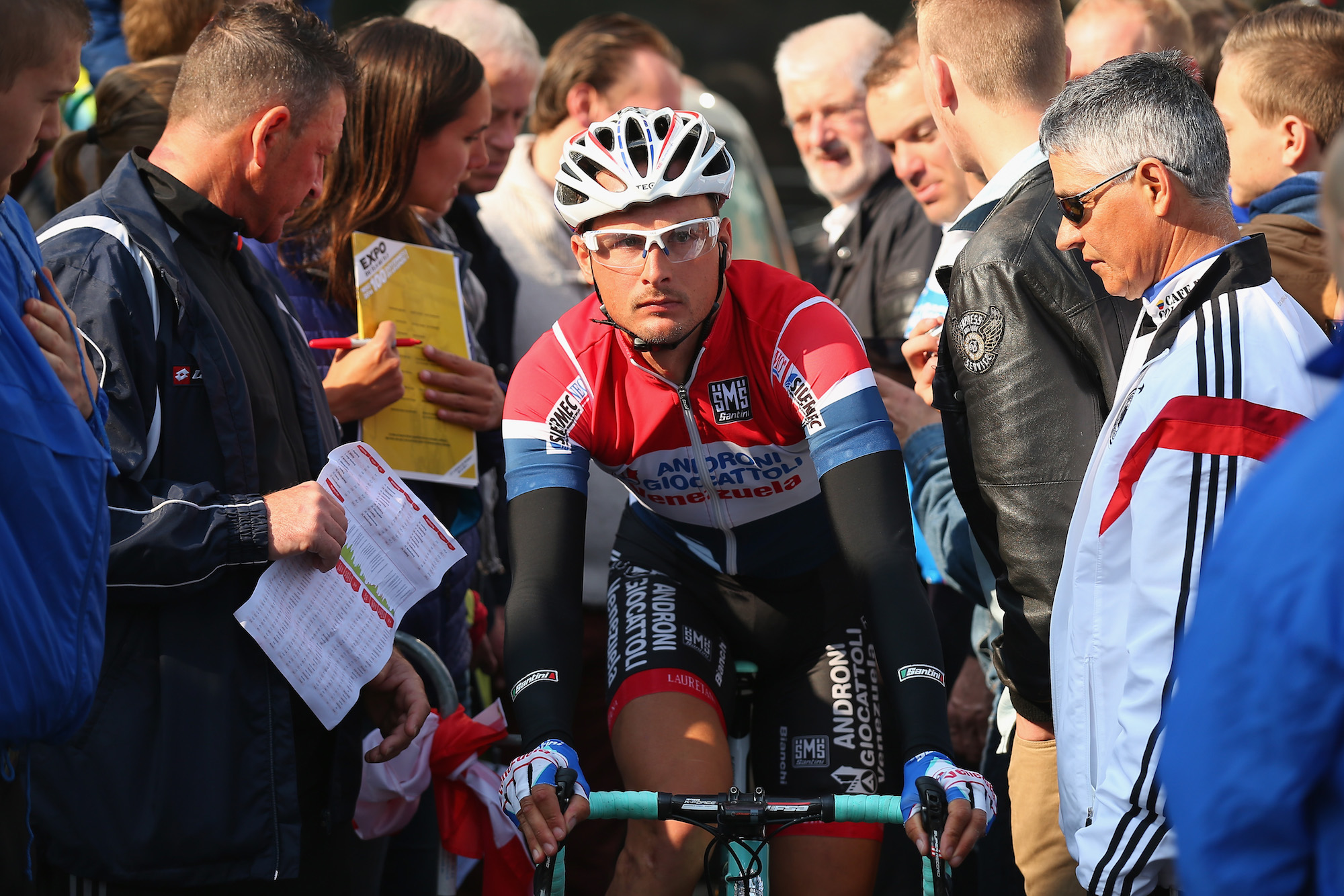
The Dutch national champion's jersey was a just reward for a torrid few years for Hoogerland. How did he get to know the man with whom he began this confused two-year period?
"I didn’t know Flecha properly before the crash, of course I knew of him, but in 2013 we were then in the same team at Vaconsoleil. It was quite strange how we were in that crash and then became team-mates.
"We had talked about the crash before we became team-mates, how he managed to deal with it, how he handled his injuries, but not too much, not every day."
After that win in Limburg, things were never quite the same, looking at Hoogerland's result sheet. A 101st place finish at that year's Tour de France, then climbing off on stage 19 of the Vuelta a España. The next year, he only managed 105th at the Giro d'Italia. A far cry from his 12th on GC at the 2009 Vuelta.
At the end of the 2016 season, his second with Roompot, having left Vaconsoleil in 2013 and then spending a year at Androni Giocattoli, Hoogerland climbed off for good. He'd had enough.
"To be honest, after the crash in Spain I was always scared in races. After what happened in Spain I had so much pain for the two weeks afterwards that something just connected in my head.
"It’s difficult to explain because I had some mental health help but in the races, I was always scared. Before the crash, I knew when I was riding the Tour of Flanders that before the climb you had to be in the first 30 riders, so I always was there because I knew I needed to be there, whatever I needed to do to make that happen otherwise you have no chance. Maybe Tom Boonen has a chance but not Johnny Hoogerland.
"After the crash I just didn’t have the fire to be there. At these critical points I would always break and be like 'yeah, maybe 70th place is also good' and then after three years... I was always someone who liked to attack, to make races, and it wasn’t fun for me anymore. Cycling was always fun for me, I loved to race to be aggressive and at that point, it just wasn't fun anymore."
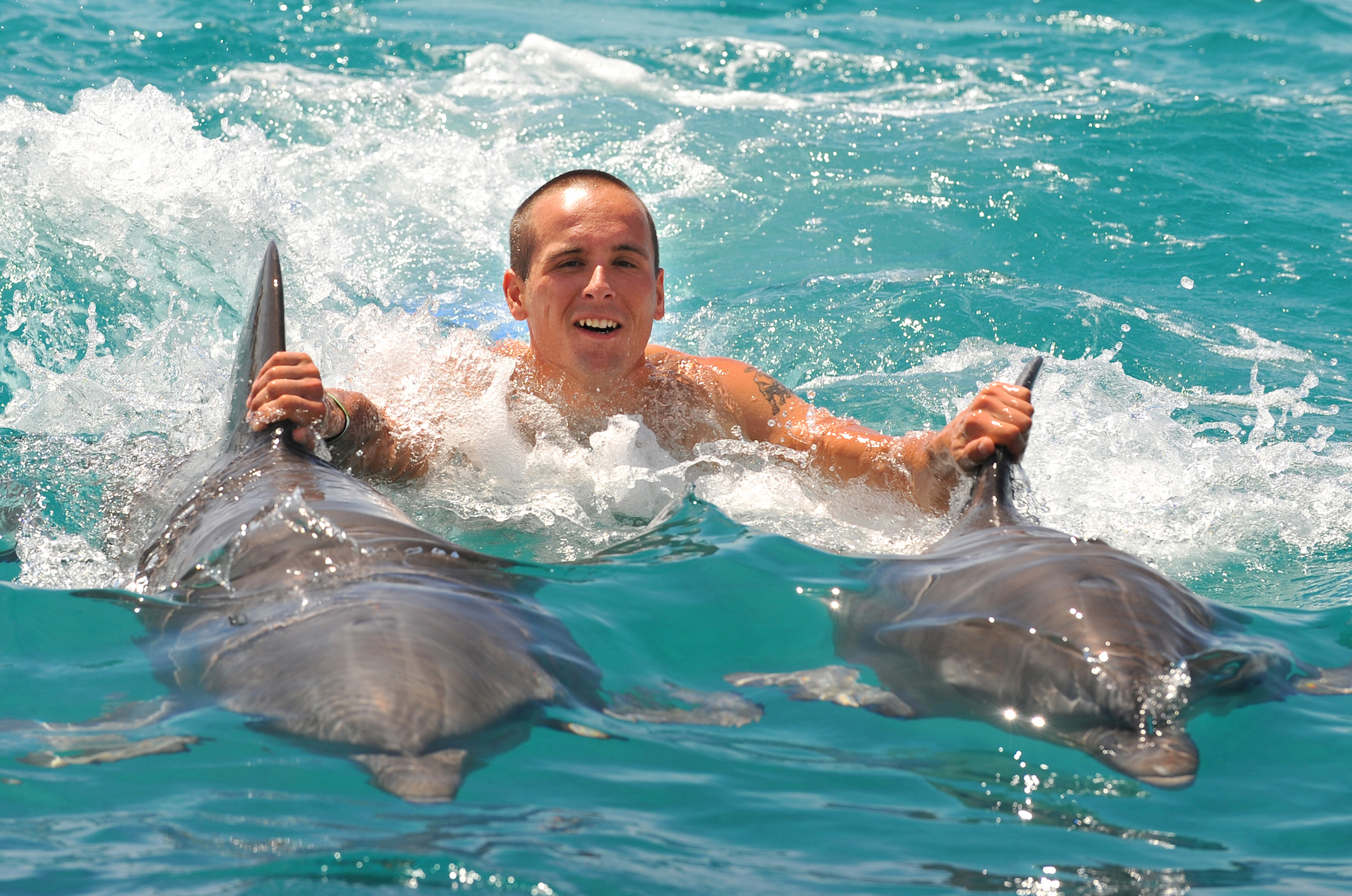
This isn't necessarily that uncommon a phenomenon. Once riders have aged a bit, maybe have a family and have made enough of an impact on the sport that they've proved they've been there and done it, the hunger just dissipates.
"At that point in my life I had two beautiful daughters but I don’t think this was the reason because I could still go downhill at 80, 90km/h but just in the races something had got me.
"During training, I remember the last year I rode I was putting out the most incredible wattages on the climbs and I was thinking ‘wow, I’m going to be flying in the races that are coming up’ and then in the actual races I was riding s**t. I would always finish the races but at the critical points, something in me stopped. At that point I was like 'this is not how I want to race'. I stopped before it became torture."
The question of what to do after a professional sporting career can plague those on the cusp of retiring, the world outside the bubble of their discipline a daunting one. What did Hoogerland decide to do?
"My wife and I always wished to live abroad, so after I quit my career we discussed what would she like, what would I like, where would be a good place for our children to grow up. And my wife is actually someone who always did ice skating so she was often in Austria where they do all the racing in winter.
"She was motivated to go to Austria, as was I, as cycling is not that popular here but the place is beautiful, so we thought let’s start a guesthouse here. We have 35 beds, and we thought we’d try and make cycling here bigger. Not many people know this region for cycling but now when people come here they’re like 'wow'."
Hoogerland clearly has not lost the love for riding his bike as he describes the riding conditions out in Carinthia, the southernmost state of Austria, where he takes guests out on rides.
"We are in the mountains but you don’t need to go in the mountains in the day, there are also beautiful routes in the valleys and varying climbs. That’s the positive thing because I’m also not motivated to go out every day and do 30kms uphill. Sometimes I like that but every day going uphill is not what I like.
"We’ve found a nice place here, the children go to school. We moved when they were two and four years old and now two years later they speak perfect German so it’s easier for them and they’ve already learnt English too, that’s a big advantage for the rest of their lives."
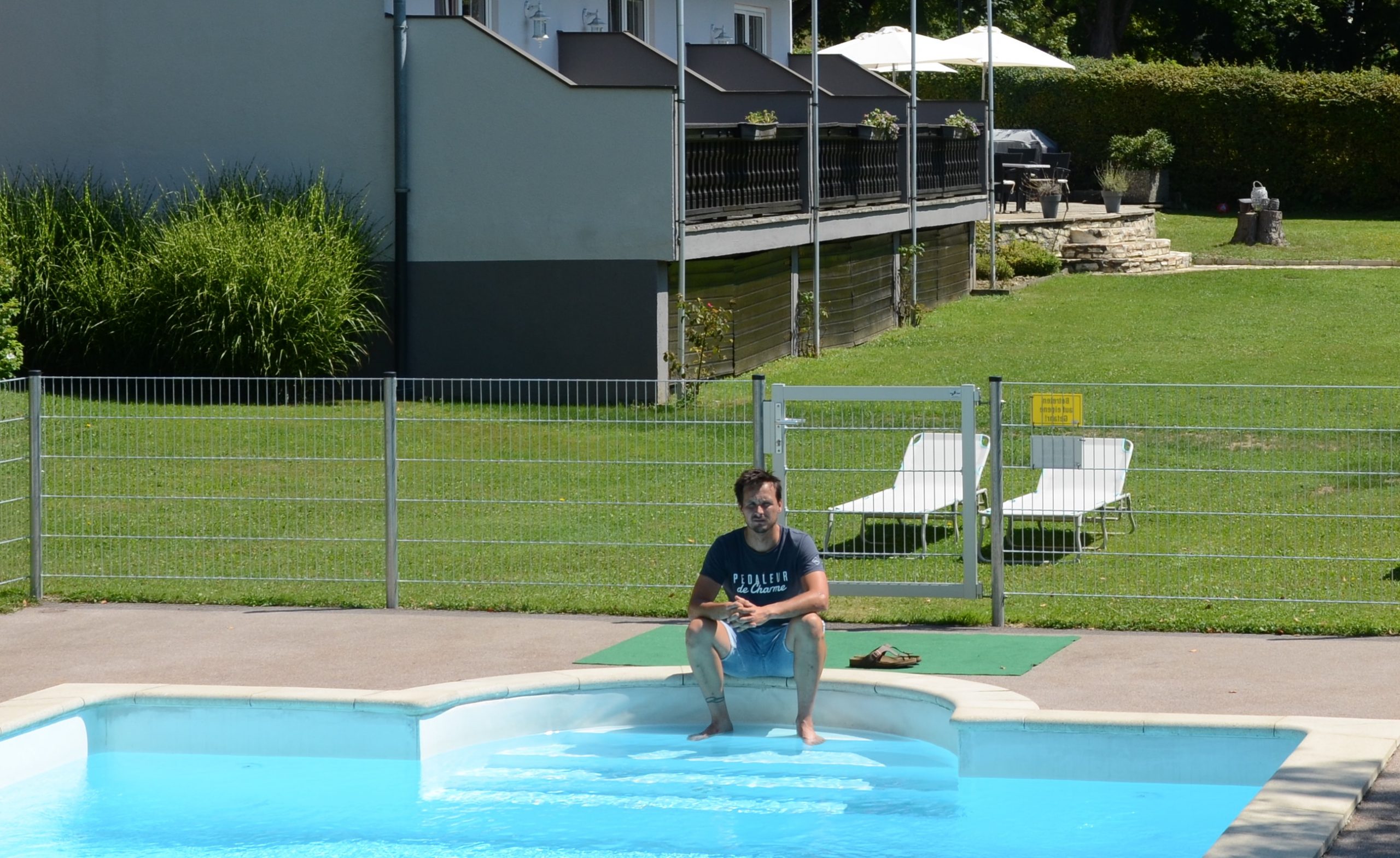
Life seems somewhat idyllic for the Hoogerlands. However, we speak in mid-March, and with the coronavirus pandemic on the upwards trajectory in Europe life has become confused for his family as it has for most across the world.
"To be honest my life is good, we are always open from March until October, so in those months it’s hard because we don’t have many people working in the hotel, we do everything together.
"The hard thing now is the coronavirus actually, because it’s affected tourism a lot. Hopefully it will disappear as soon as it came but I don’t know... I can’t look in the future."
More info on Johnny Hoogerland's guesthouse can be found here
What about his career, what was the most difficult time during his 14 years as a pro?
"The time I decided to quit was pretty hard because my wish was always to ride through until I was 38 and then I quit when I was 34, so that was not how I planned it."
Life going the way in which we planned is something everyone is currently coming to terms with. It's likely Hoogerland will see this as just yet another challenge to endure and overcome, finding peace in the fact that joy, manifested sometimes in a Dutch national champion's jersey or an Austrian mountain range, is probably not too far around the corner.
This article was originally published on April 10, 2020

Thank you for reading 20 articles this month* Join now for unlimited access
Enjoy your first month for just £1 / $1 / €1
*Read 5 free articles per month without a subscription

Join now for unlimited access
Try first month for just £1 / $1 / €1
Jonny was Cycling Weekly's Weekend Editor until 2022.
I like writing offbeat features and eating too much bread when working out on the road at bike races.
Before joining Cycling Weekly I worked at The Tab and I've also written for Vice, Time Out, and worked freelance for The Telegraph (I know, but I needed the money at the time so let me live).
I also worked for ITV Cycling between 2011-2018 on their Tour de France and Vuelta a España coverage. Sometimes I'd be helping the producers make the programme and other times I'd be getting the lunches. Just in case you were wondering - Phil Liggett and Paul Sherwen had the same ham sandwich every day, it was great.
-
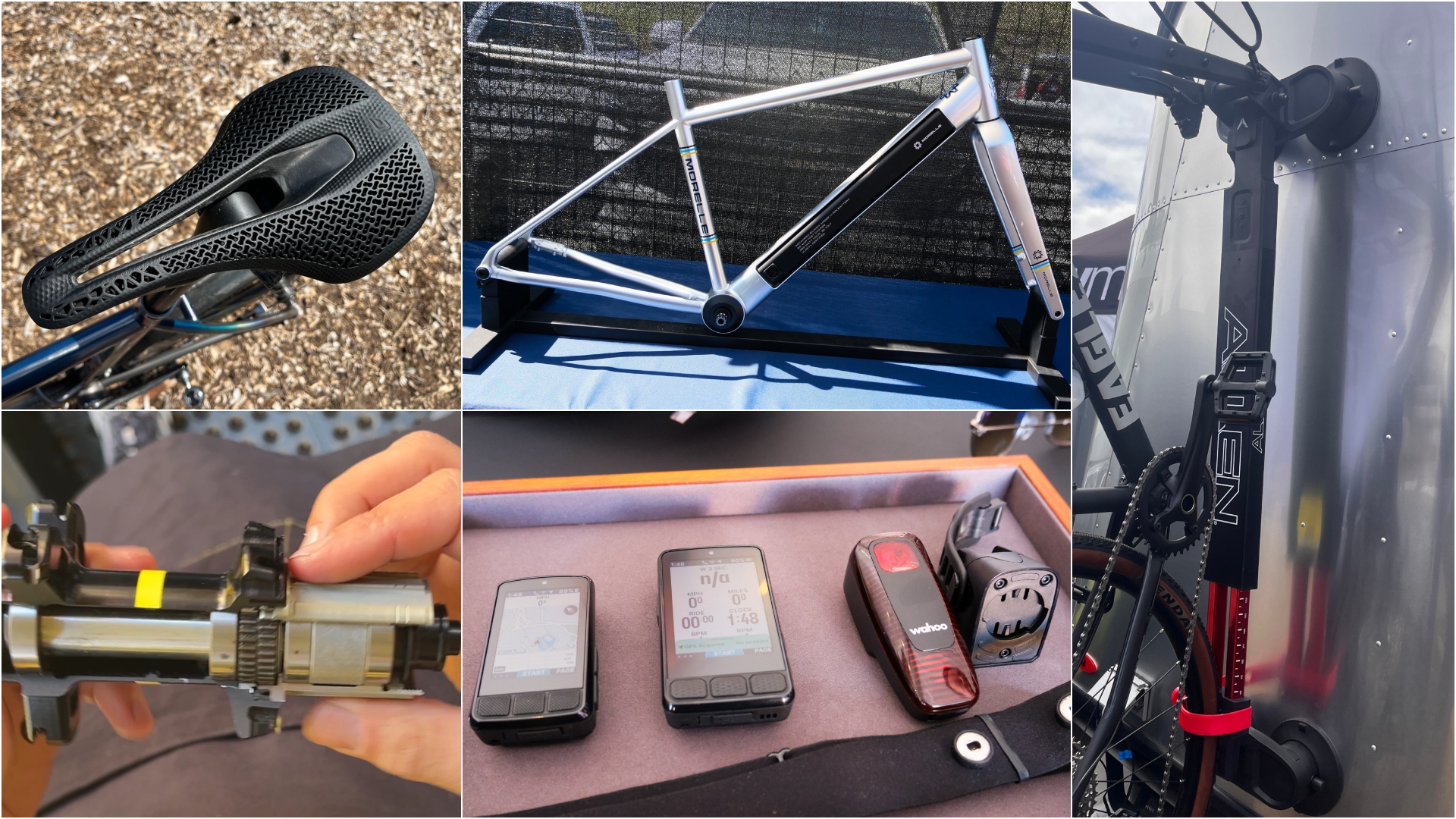 A bike rack with an app? Wahoo’s latest, and a hub silencer – Sea Otter Classic tech highlights, Part 2
A bike rack with an app? Wahoo’s latest, and a hub silencer – Sea Otter Classic tech highlights, Part 2A few standout pieces of gear from North America's biggest bike gathering
By Anne-Marije Rook
-
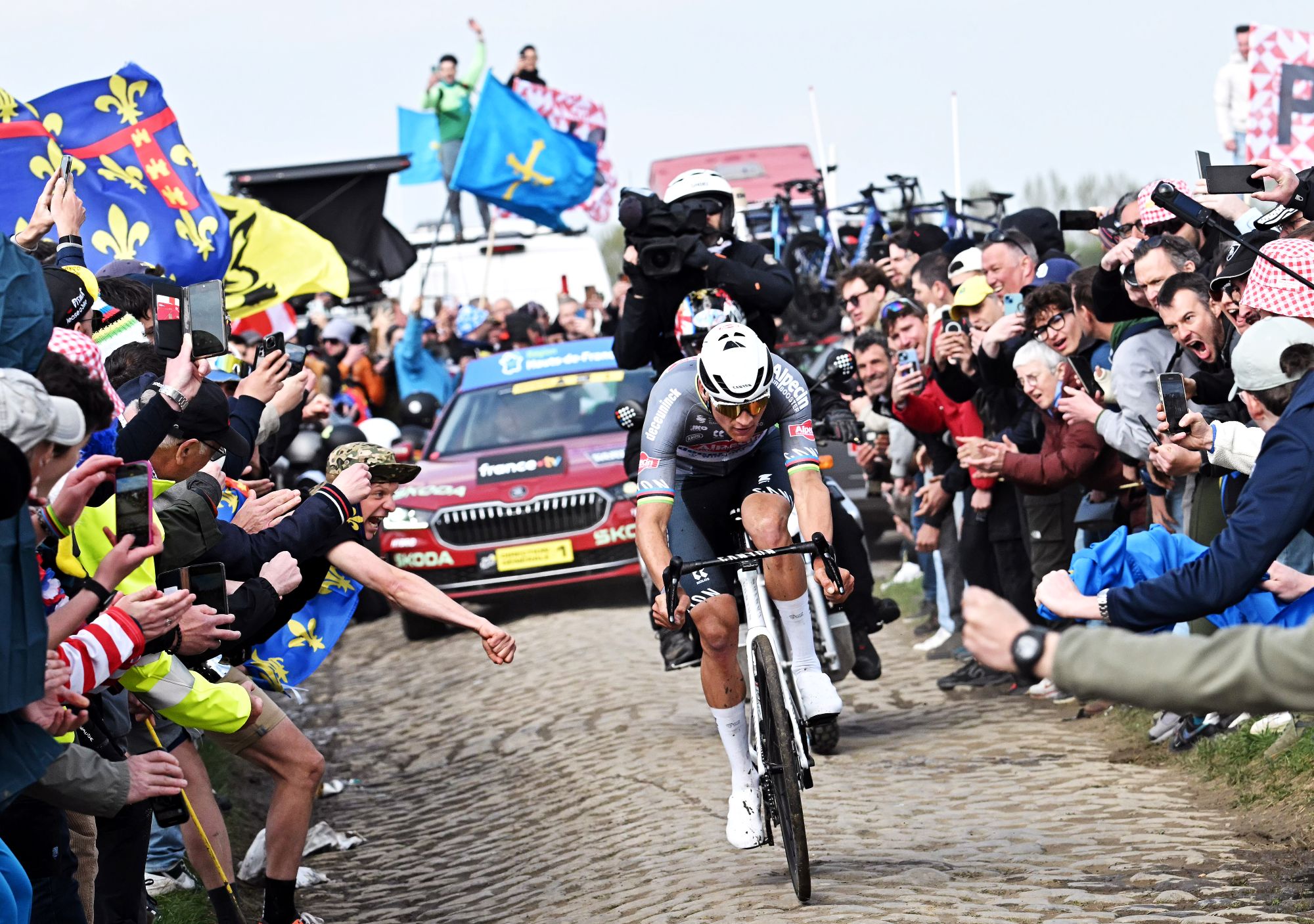 Cycling's riders need more protection from mindless 'fans' at races to avoid another Mathieu van der Poel Paris-Roubaix bottle incident
Cycling's riders need more protection from mindless 'fans' at races to avoid another Mathieu van der Poel Paris-Roubaix bottle incidentCycling's authorities must do everything within their power to prevent spectators from assaulting riders
By Tom Thewlis
-
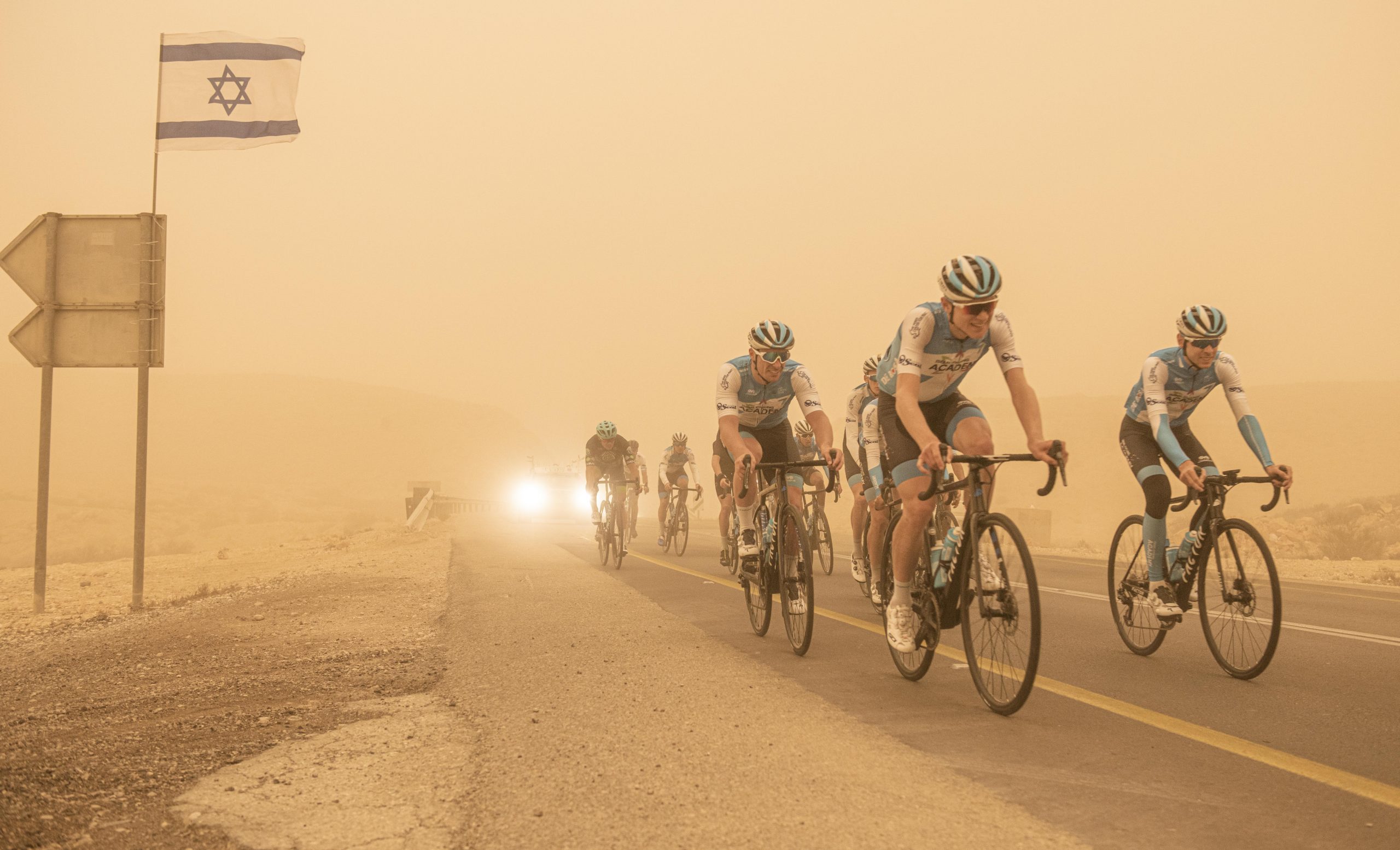 From Gaza to the Giro d’Italia – the many faces of Israel Start-Up Nation
From Gaza to the Giro d’Italia – the many faces of Israel Start-Up Nation“Thank you for the question, because this is so dumb,” says Canadian billionaire Sylvan Adams, who has just touched down from Miami and is sat in the lobby of a beachfront hotel in Tel Aviv.
By Alex Ballinger
-
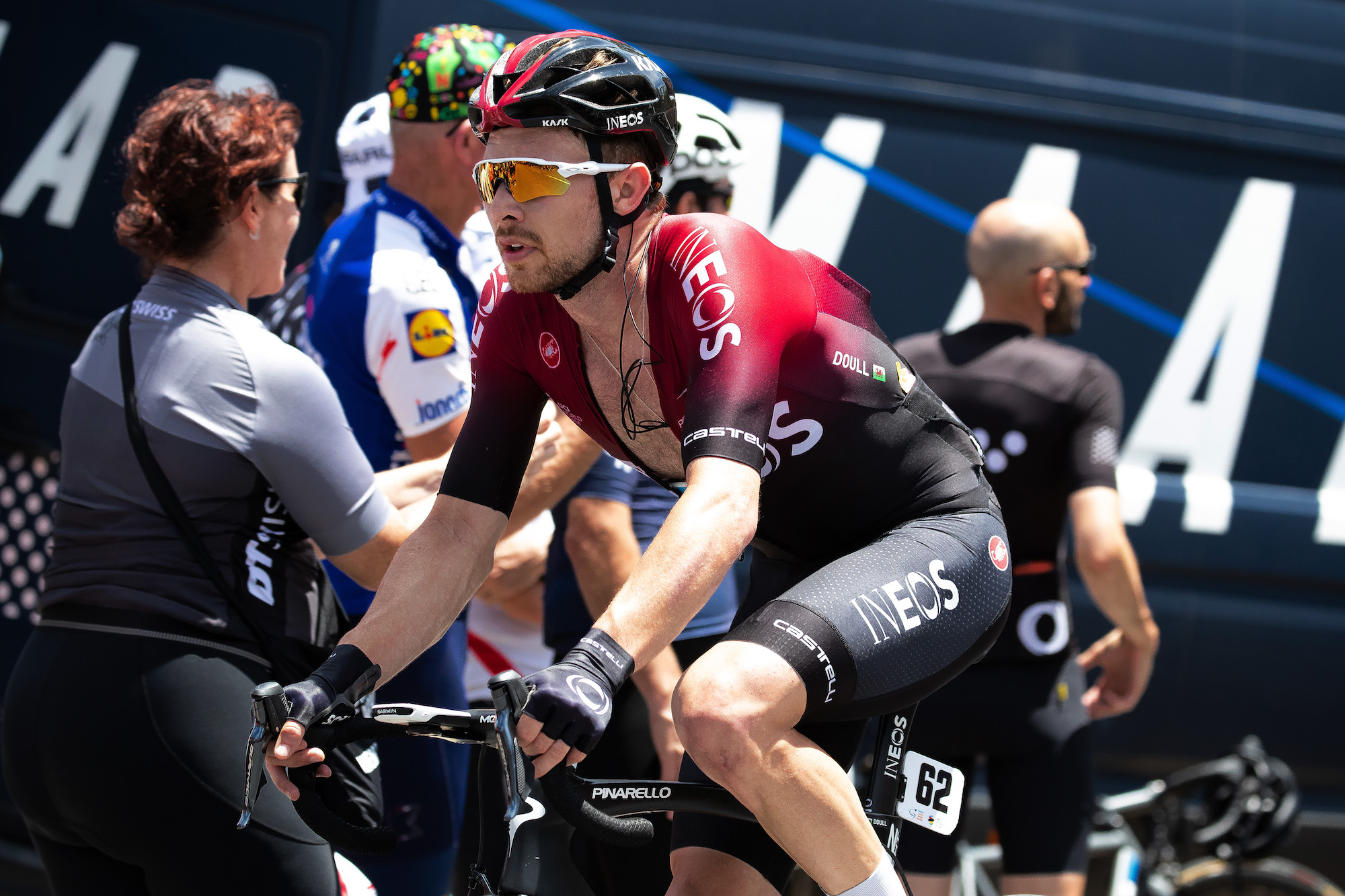 'The domestiques on our team are unsung heroes': Owain Doull Q&A
'The domestiques on our team are unsung heroes': Owain Doull Q&AThe Olympian and Team Ineos man on his Maindy roots, staying motivated and passion for coffee
By David Bradford
-
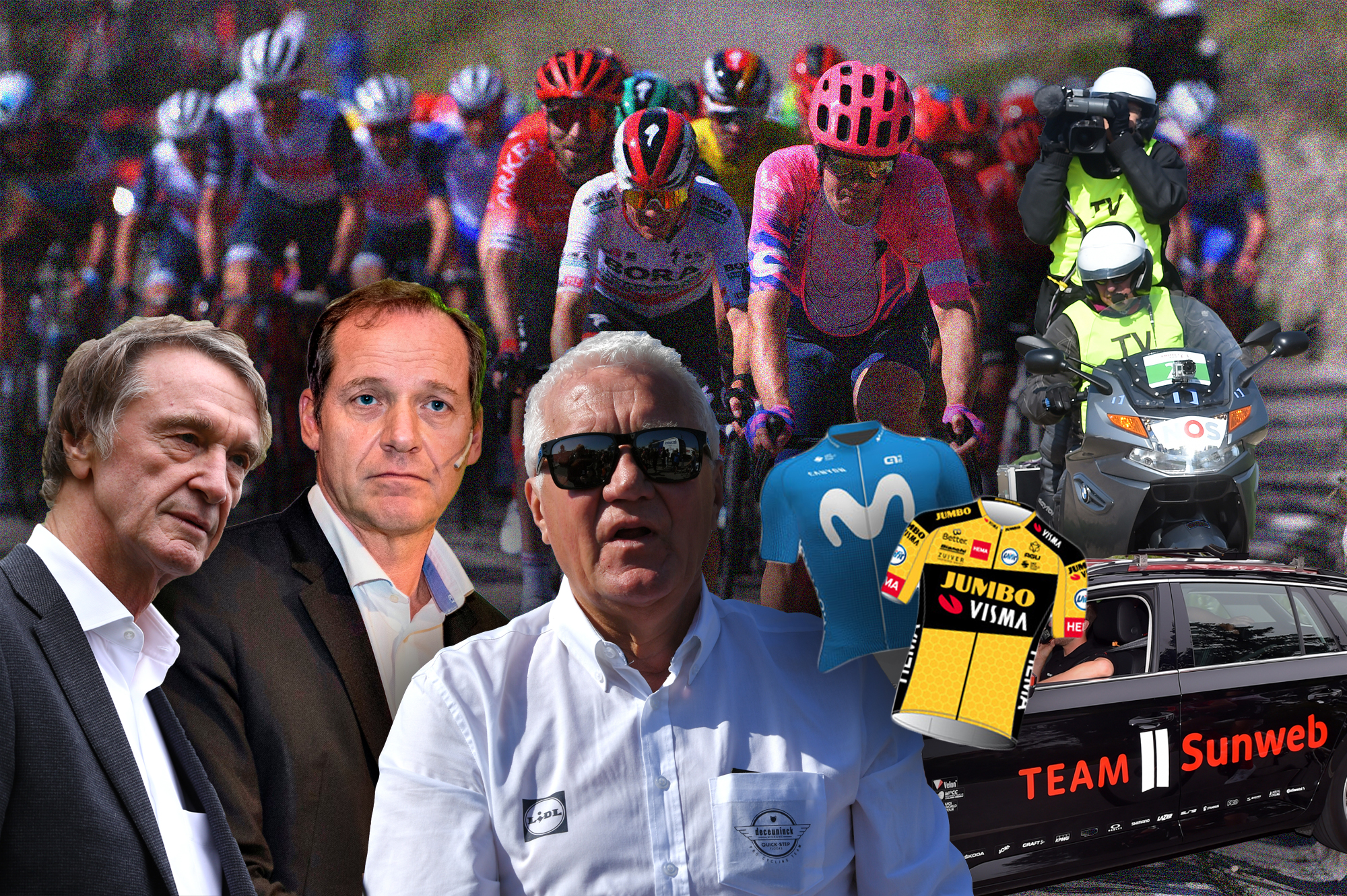 What will happen to pro cycling? Exploring the economic landscape after coronavirus
What will happen to pro cycling? Exploring the economic landscape after coronavirusFrom the fate of various WorldTour teams to whether a behind-closed-doors Tour de France actually solves anything
By Jonny Long
-
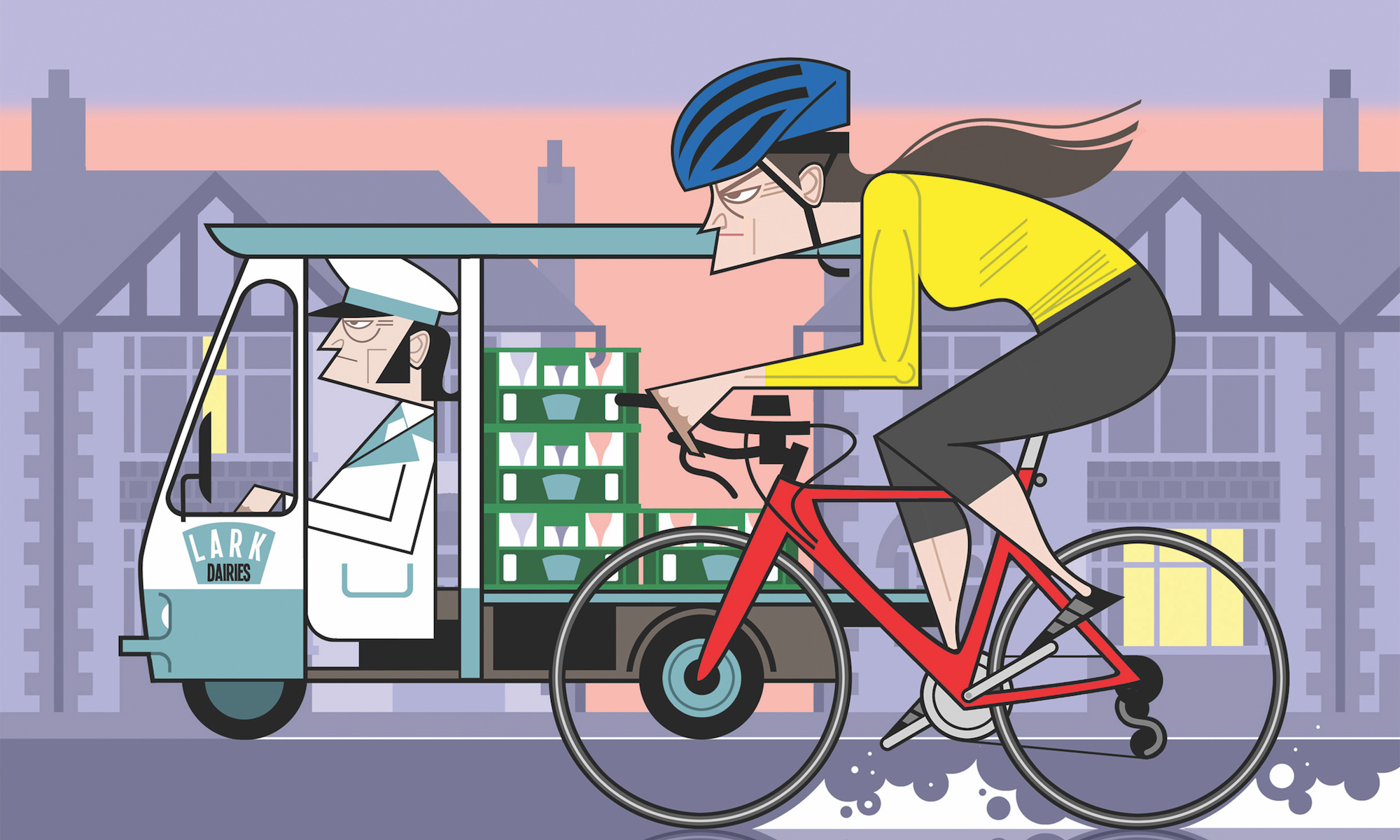 Is there a best time to train? A sports scientist investigates
Is there a best time to train? A sports scientist investigatesMost of us ride our bikes whenever we get chance, but is there a best time of day when you’ll unlock the most potential and make maximum gains? Sports scientist Dr Mark Homer investigates
By Cycling Weekly
-
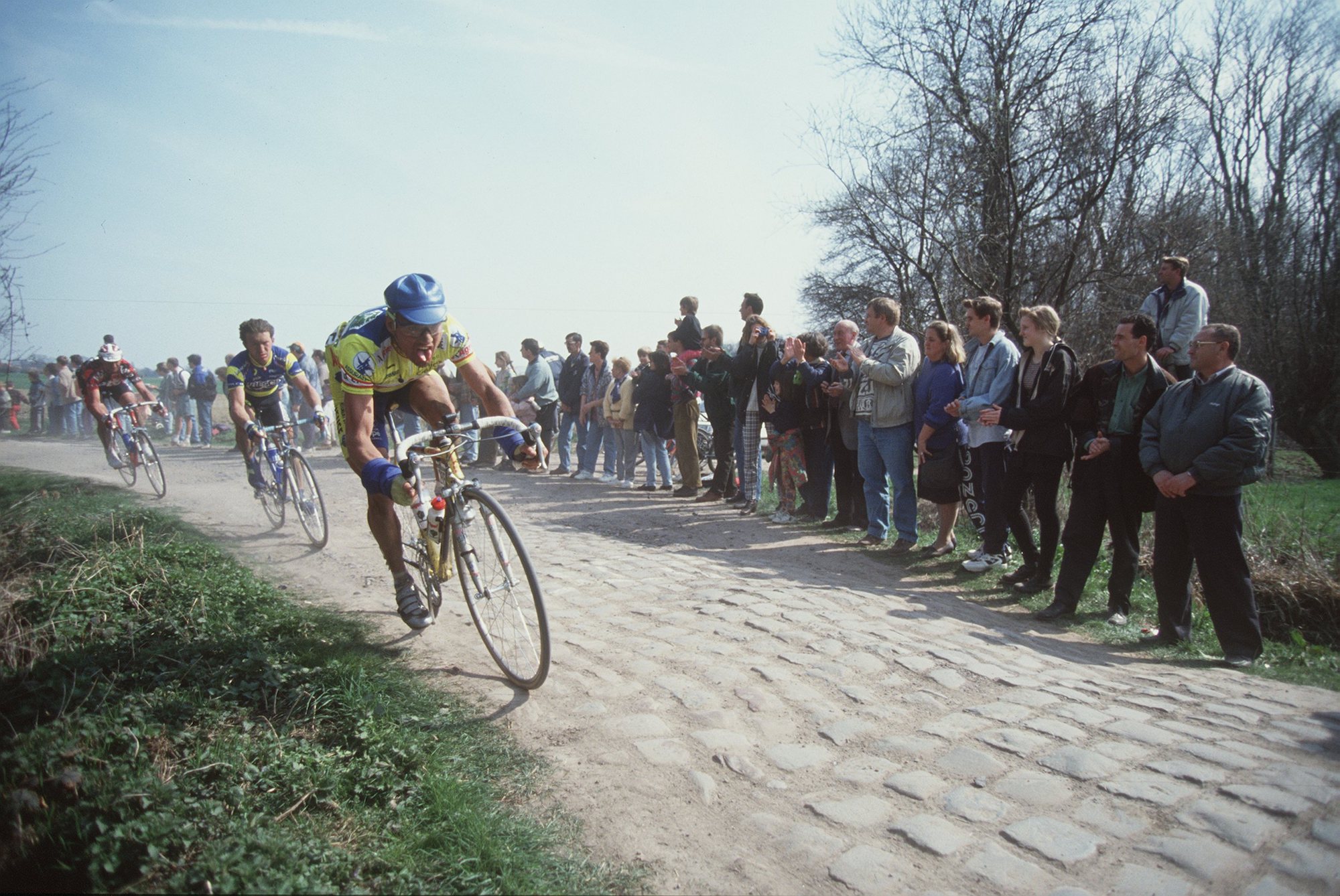 Forging legends: Here are the 10 best Classics of all-time
Forging legends: Here are the 10 best Classics of all-timeDo you agree?
By Cycling Weekly
-
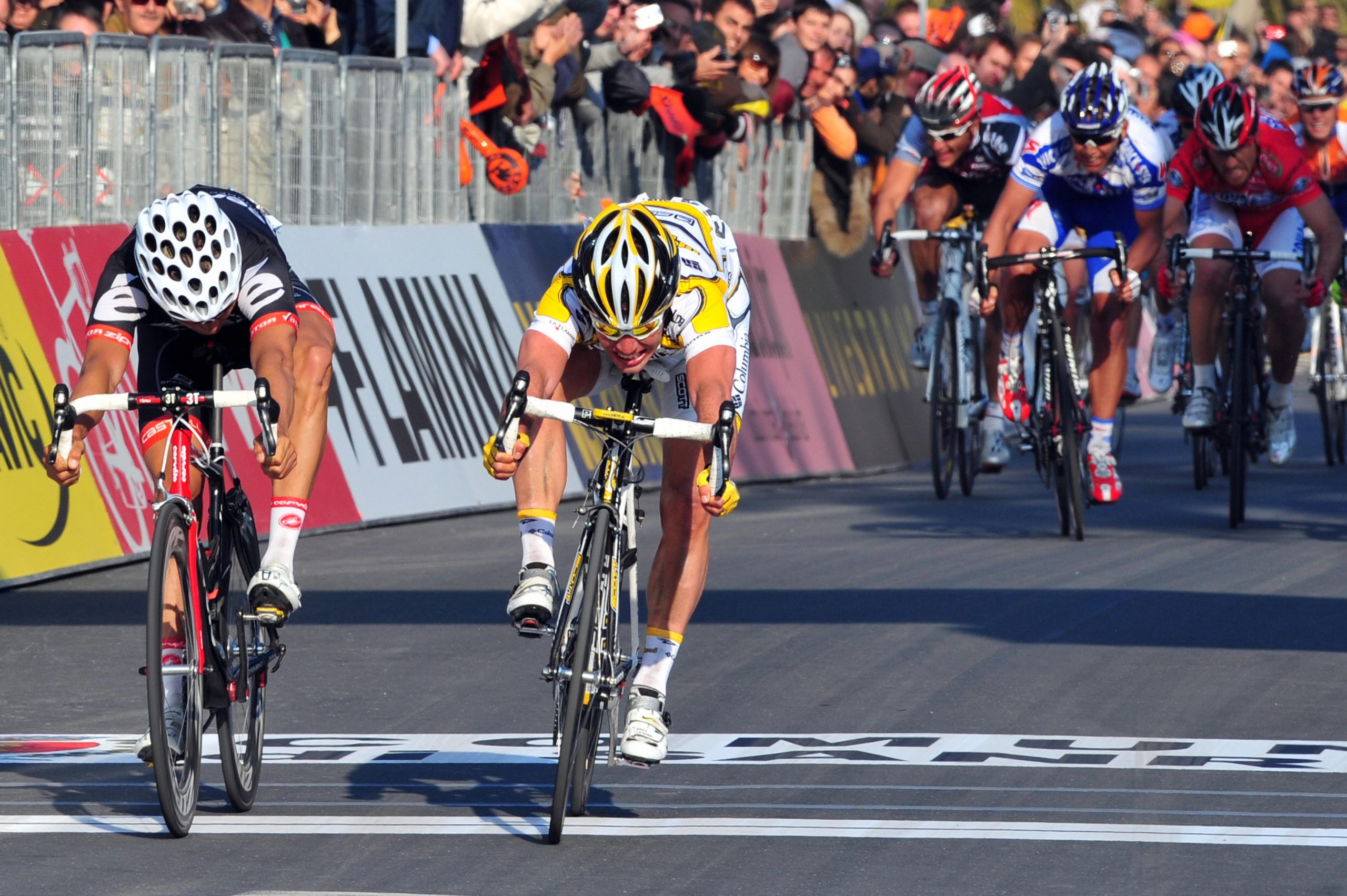 Five of the all-time best Classics rides by Brits
Five of the all-time best Classics rides by BritsFrom Tom Simpson to Lizzie Deignan
By Cycling Weekly
-
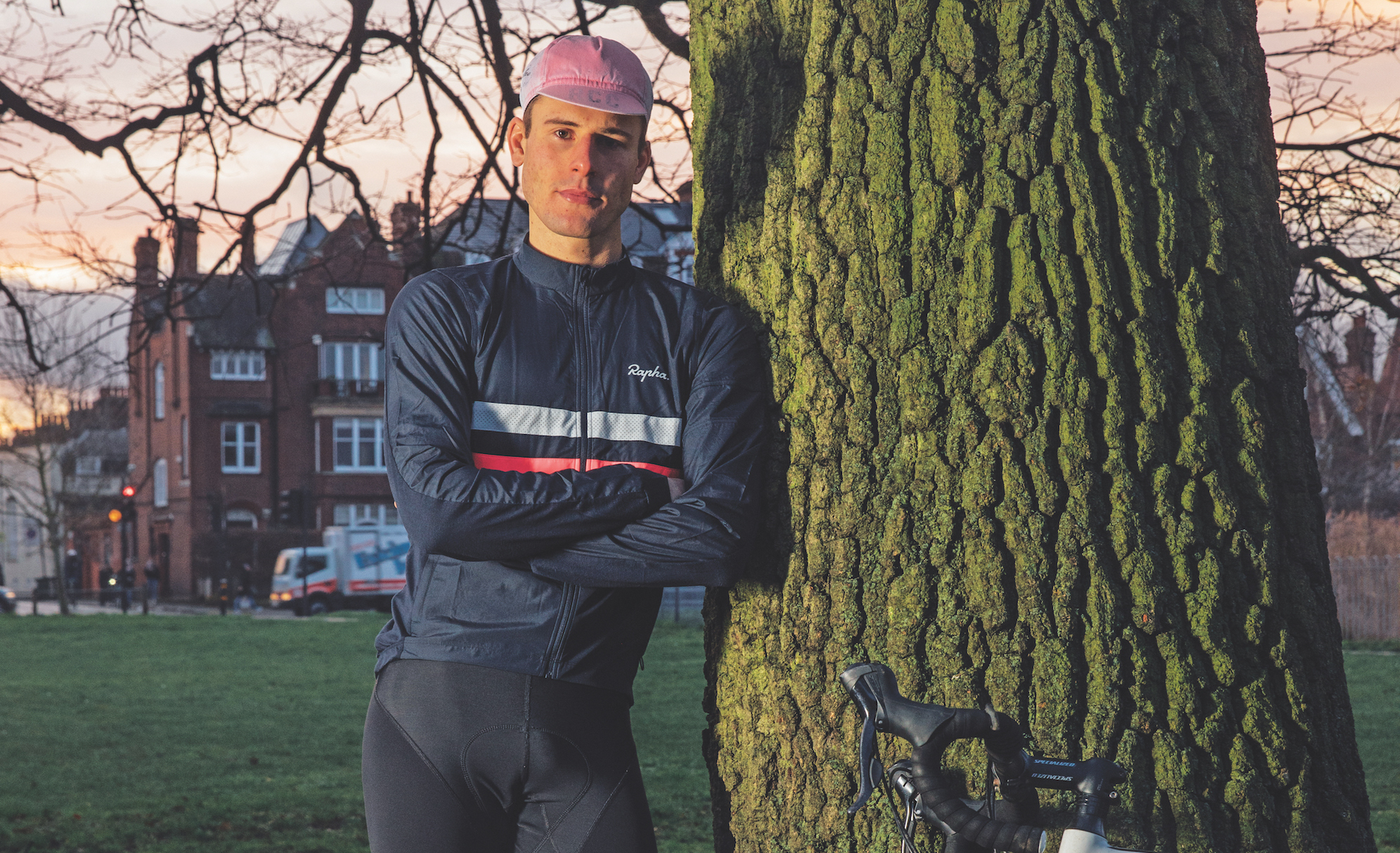 Sweet success: How I won Red Bull Timelaps as a diabetic rider
Sweet success: How I won Red Bull Timelaps as a diabetic riderType-1 diabetic George Kirkpatrick is on a mission to prove that compromised blood sugar control is no barrier to success — however long the race
By David Bradford
-
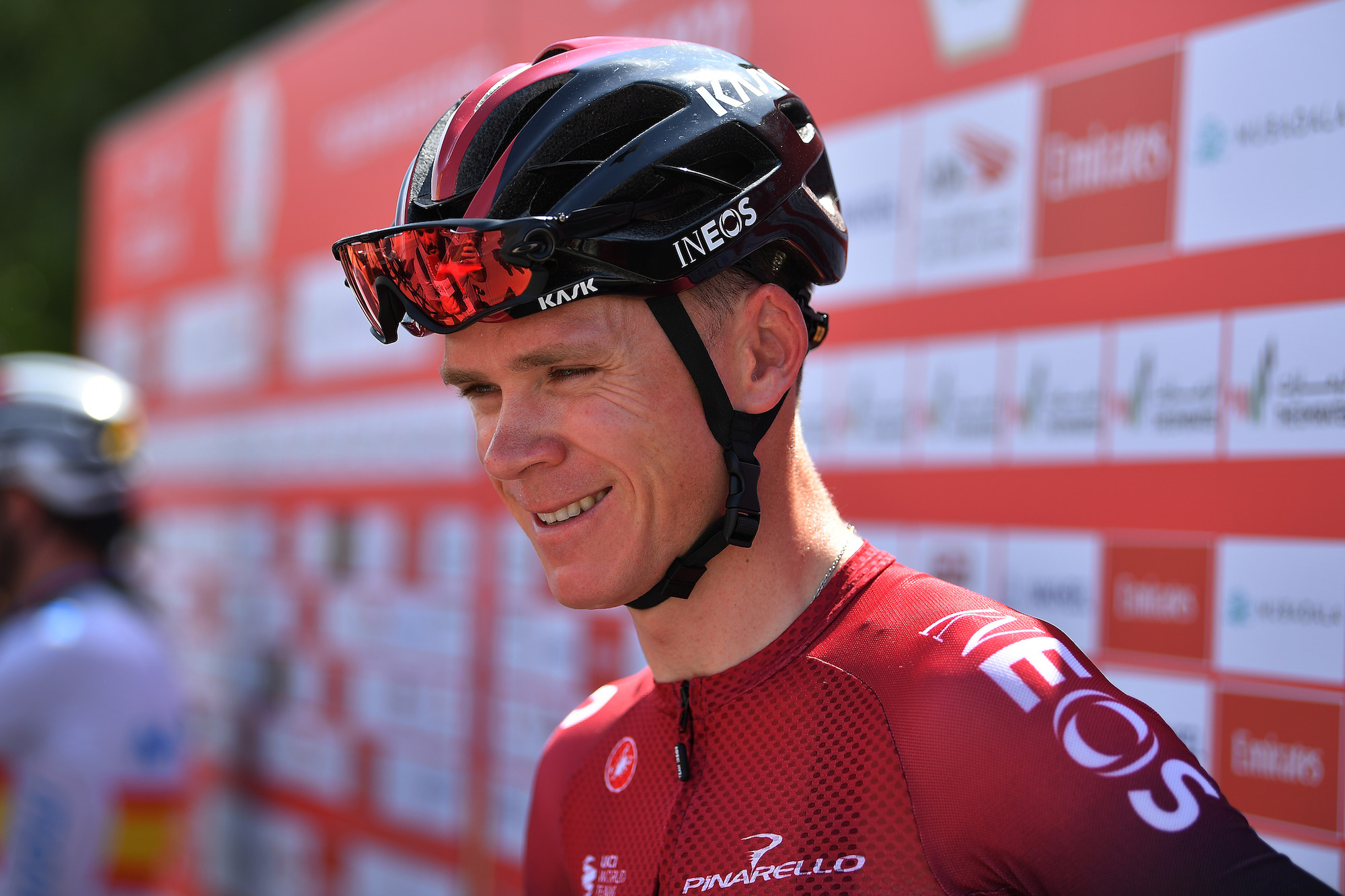 Can Chris Froome recover to win a fifth Tour?
Can Chris Froome recover to win a fifth Tour?After a horrific crash, Froome’s road to recovery has not been easy. James Shrubsall assesses the hurdles he’ll need to overcome to wear yellow in Paris this July
By James Shrubsall